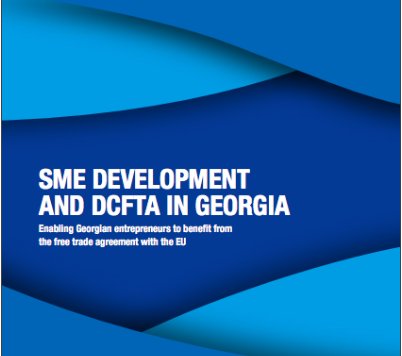
Up to 100 Georgian SMEs are now in a better position to take advantage of the benefits that the free trade agreement between the EU and Georgia provides via joining business clusters.
With support from the EU4Business Initiative of the European Union SME Development and DCFTA in Georgia Project supported establishment of three business clusters in Georgia and laid a groundwork for the other two, reaching out up to 100 SMEs in furniture/interior design, film production/post-production, ICT, apparel and honey production sectors. As a result of the 4-year project, these SMEs got access to the leading international expertise that helped them identify opportunities for capacity and product development, increased competetiveness and integration with the European market. Cluster member SMEs currently employ more than 1,400 staff members.
“With its trademark clustering initiative, the project helped establish three industrial clusters in Georgia: Georgian Furniture Cluster, Georgian Film Cluster and Georgian ICT Cluster and laid a groundwork for the two other – in apparel and honey production sectors. Members of these clusters were provided with continuous training, consulting and networking opportunities that ultimately enabled them to create collaborative platforms, create joint projects and connect locally and internationally,” – said Philipp Steinheim, Project Team Leader. – “We are also happy to see that the Government of Georgia embraced the business clustering approach and views it as an important contributor to strengthening the Georgian SME sector and economic development of the country at large.” – he added.
The Project focused on improving the institutional support framework of government agencies for SMEs and business development. It engaged intensively with the key governmental partners on both policy development and implementation levels. The Project supported elaboration of the blueprint for the Georgian National Cluster Development Programme that will serve as a foundation for the development of a national strategy and action plan to follow in the near future. Furthermore, the Project applied tailor-made methodologies for the analysis and prioritisation of the export potential in Georgia’s furniture, apparel and ICT industries and helped develop National Guidelines for Production of Quality Honey. The latter was an outcome of a comprehensive, multifaceted three-year long process, which also brought about one of the Project’s major highlights - the first export of Georgian premium quality honey to Europe under the brand name TAPLI. By end of 2019, over 5,000 jars of Georgian honey under the TAPLI brand were exported to Germany with more to follow in the coming years.
To raise awareness of the free trade agreement with EU among Georgian business, the Project also supported development and management of the official online portal - DCFTA.gov.ge, run by the Ministry of Economy and Sustainable Development of Georgia, which also includes five video instructions on specific rules and procedures for business.
The Project helped business support organisations provide better services to SMEs in the process of their adaptation to AA/DCFTA requirements. In partnership with the Georgian Chamber of Commerce and Industry, the Project helped establish four regional offices of the DCFTA Information Centre across the country that provided various consulting and training services to 6,410 SMEs focusing on the requirements of the EU market across a wide range of sectors.
All results and achievements of the project have been recently published in the final report.
SME Development and DCFTA in Georgia project was carried out by the Deutsche Gesellschaft für Internationale Zusammenarbeit (GIZ) through the Private Sector Development South Caucasus Programme on behalf of German Federal Ministry for Economic Cooperation and Development (BMZ).The purpose of the project was to support implementation of the Deep and Comprehensive Free Trade Agreement (DCFTA) related institutional and regulatory reforms with a strong focus on strengthening the capacities of Georgian SMEs, both to increase their competitiveness and to ensure their adaptation to the new regulatory environment. The project aimed at laying the ground for strengthening the SME sector in Georgia to ensure a broad based economic growth. The project was funded by the European Union under its EU4Business Initiative and the German Government with a budget of over €5 million.
